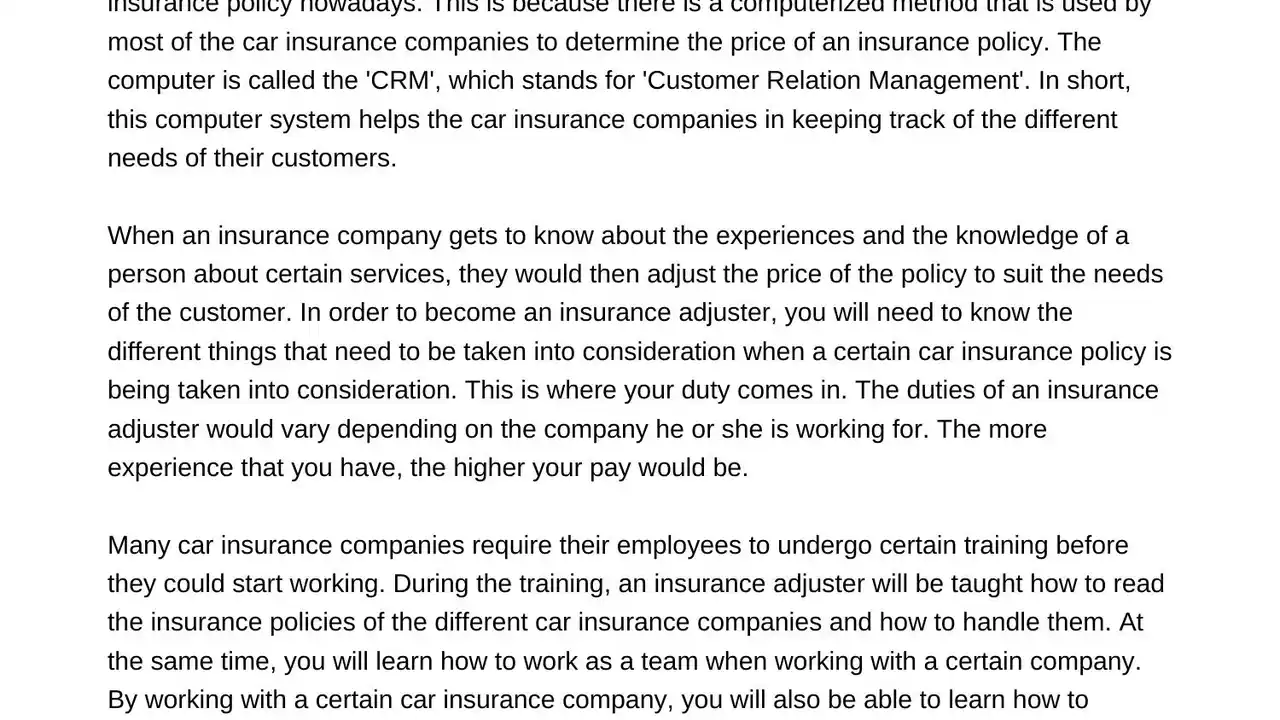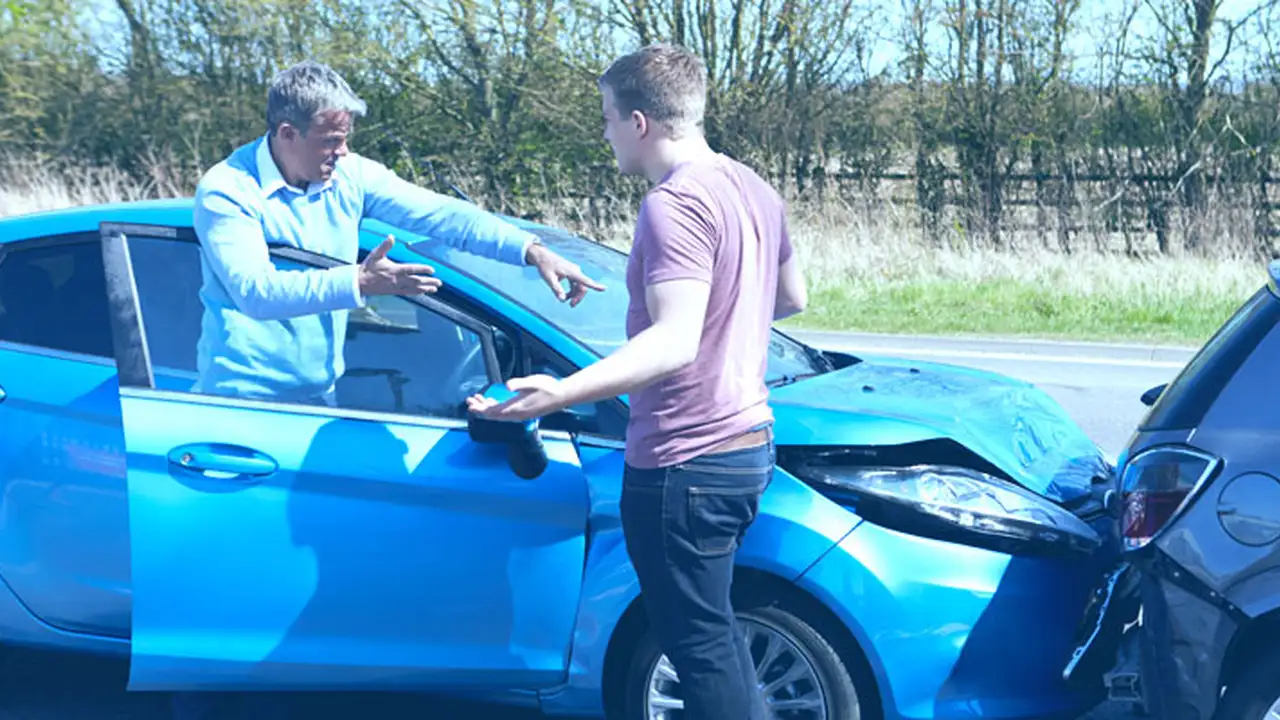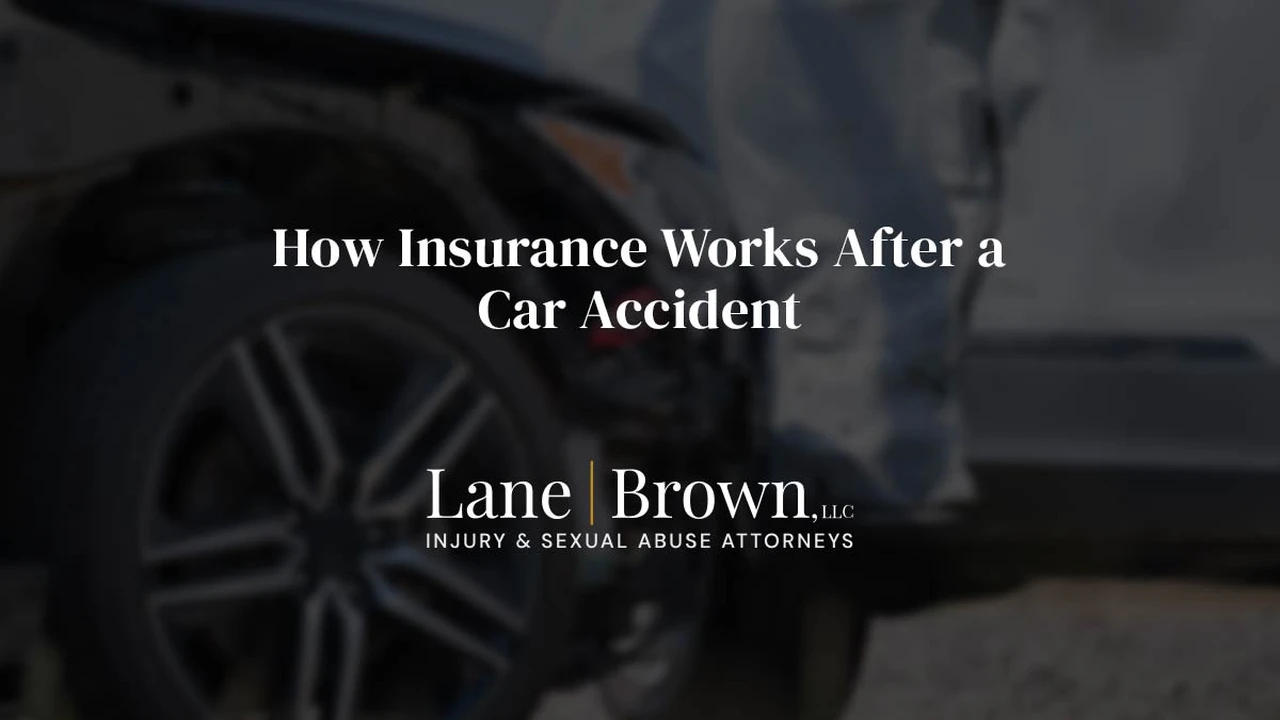Working with a Car Insurance Adjuster: What to Expect

Understanding the Role of a Car Insurance Adjuster in Accident Claims
Okay, so you've been in a car accident. Not fun, right? One of the first people you'll likely be dealing with is a car insurance adjuster. Think of them as the point person for the insurance company. Their job is to investigate your claim, assess the damage, and ultimately, determine how much the insurance company will pay out. They're not necessarily *against* you, but they *are* representing the insurance company's interests. So, it's good to know what to expect.
First things first, the adjuster will probably want to talk to you shortly after the accident. They'll ask you about the details of the accident, who you think was at fault, and any injuries you sustained. Be honest, but stick to the facts. Don't speculate or admit fault if you're not sure. It's always a good idea to consult with a lawyer before giving a recorded statement.
The adjuster will also likely want to inspect your car. They'll look at the damage and may get estimates from different repair shops. They might even use their own preferred repair shop. You have the right to get your own estimates, though, and you don't have to use the adjuster's recommended shop if you're not comfortable with it.
Initial Contact and Reporting Your Car Accident Claim
The initial contact is crucial. Report the accident to your insurance company ASAP. Even if you think it's minor, and even if you think the other driver is at fault, reporting the accident protects you. The adjuster will likely call you within a day or two of the accident report. Be prepared to answer questions about the date, time, and location of the accident, as well as a brief description of what happened. Keep it simple and factual.
Document everything! Keep a record of all communication with the adjuster, including dates, times, and what was discussed. Save copies of all documents you send and receive. This is your evidence trail.
Negotiating Your Car Insurance Settlement for Maximum Value
Negotiation is key. The initial offer from the adjuster might not be the best you can get. Don't be afraid to negotiate. Come prepared with your own estimates, medical bills, and lost wage documentation. Show the adjuster why you deserve a higher settlement.
Know the value of your car. Use resources like Kelley Blue Book or Edmunds to determine the fair market value of your vehicle. If your car is totaled, the insurance company should pay you that amount. Don't accept a lower offer without challenging it.
Understand diminished value. Even after your car is repaired, it might be worth less than it was before the accident. This is called diminished value. You may be able to recover this loss from the at-fault driver's insurance company.
Understanding Car Insurance Policy Coverage Types and Limitations
Before you even file a claim, *really* understand your policy. What are your coverage limits? Do you have collision coverage? Uninsured/underinsured motorist coverage? Knowing this information will help you understand what you're entitled to and what the adjuster is (or isn't) required to pay for.
Collision coverage pays for damage to your car, regardless of who was at fault. Comprehensive coverage pays for damage from things like theft, vandalism, or natural disasters. Liability coverage pays for damage you cause to others.
Uninsured/underinsured motorist coverage protects you if you're hit by someone who doesn't have insurance or doesn't have enough insurance to cover your damages. This is a *very* important coverage to have.
Dealing with Delays and Denials in Your Car Accident Claim
Sometimes, claims get delayed. The adjuster might be waiting on police reports, medical records, or repair estimates. If your claim is delayed, follow up with the adjuster regularly. Ask for updates and find out what's causing the delay.
If your claim is denied, don't give up. Find out *why* it was denied. You have the right to appeal the decision. Gather any additional evidence that supports your claim and submit it to the insurance company. If still denied, consider consulting with an attorney.
When to Hire a Car Accident Attorney for Legal Assistance
Knowing when to call a lawyer is important. If you've suffered serious injuries, if the insurance company is denying your claim, or if you're having trouble negotiating a fair settlement, it's time to talk to a car accident attorney. Most offer free consultations.
An attorney can help you navigate the legal process, negotiate with the insurance company, and even file a lawsuit if necessary. They can also help you understand your rights and ensure that you receive the compensation you deserve.
Car Insurance Product Recommendations for Enhanced Protection
Beyond the standard liability, collision, and comprehensive coverage, consider these add-ons to beef up your protection:
Gap Insurance: Protecting Your Investment in a New Car
Gap insurance covers the "gap" between what you owe on your car loan and what the car is actually worth if it's totaled. This is especially important if you bought a new car and didn't put a lot of money down. If you total your car a year after buying it, you could owe more on the loan than the car is worth. Gap insurance covers that difference.
Scenario: You buy a new car for $30,000 and finance the entire amount. A year later, you total the car. The insurance company says the car is worth $25,000. You still owe $27,000 on the loan. Gap insurance would cover the $2,000 difference.
Products:
- Your Car Dealer's Gap Insurance: Often offered at the dealership when you buy the car. Convenient, but often overpriced.
- Your Auto Insurance Company's Gap Insurance: Usually more affordable than the dealer's option. Companies like Geico, State Farm, and Progressive offer this.
- Credit Union Gap Insurance: If you financed through a credit union, they often offer competitive gap insurance rates.
Comparison: Dealer gap insurance is easiest but typically most expensive. Insurance company gap insurance is usually cheaper but requires some extra legwork to set up. Credit Union gap insurance can be a good middle ground.
Price: Gap insurance typically costs between $200 and $700, depending on the provider and the amount of coverage.
Rental Car Reimbursement: Staying Mobile After an Accident
Rental car reimbursement covers the cost of a rental car while your car is being repaired after an accident. This is a lifesaver if you rely on your car for work or other essential activities.
Scenario: You're in an accident, and your car needs to be in the shop for two weeks. Rental car reimbursement would cover the cost of a rental car for those two weeks, up to a certain daily limit.
Products:
- Geico Rental Reimbursement: Known for its competitive rates and flexible coverage options.
- State Farm Rental Reimbursement: Offers a wide range of coverage levels to suit different needs.
- Progressive Rental Reimbursement: Provides convenient online claim filing and rental car booking.
Comparison: Geico often has the lowest prices, but State Farm offers more comprehensive coverage options. Progressive excels in online convenience.
Price: Rental car reimbursement typically costs between $20 and $50 per year, depending on the daily limit and the length of coverage.
Roadside Assistance: Peace of Mind on the Road
Roadside assistance covers things like towing, jump-starts, tire changes, and fuel delivery if you break down on the road. This is a great option for drivers who travel frequently or who have older cars.
Scenario: You get a flat tire on the highway. Roadside assistance will send someone to change your tire for you.
Products:
- AAA Roadside Assistance: The gold standard, with extensive coverage and a wide network of service providers.
- Your Auto Insurance Company's Roadside Assistance: Often a more affordable option than AAA, but coverage may be more limited.
- Standalone Roadside Assistance Plans: Companies like Better World Club offer eco-friendly roadside assistance options.
Comparison: AAA offers the most comprehensive coverage, but it's also the most expensive. Your insurance company's roadside assistance is usually more affordable. Standalone plans can be a good option if you're looking for specific features.
Price: Roadside assistance typically costs between $50 and $150 per year, depending on the level of coverage and the provider.
Understanding Car Insurance Adjuster Tactics and How to Respond
Adjusters are trained professionals. They know how to minimize payouts. Be aware of common tactics like:
- Lowball Offers: The initial offer is often significantly lower than what you deserve.
- Pressuring for Quick Settlements: They might try to rush you into accepting a settlement before you've fully assessed your damages.
- Questioning Your Injuries: They might try to minimize your injuries or suggest they are not related to the accident.
- Blaming You for the Accident: Even if you were not at fault, they might try to shift some blame onto you.
How to Respond:
- Don't Accept the First Offer: Always negotiate.
- Don't Rush: Take your time to assess your damages and consult with professionals.
- Document Everything: Keep detailed records of all communication and expenses.
- Know Your Rights: Familiarize yourself with your state's insurance laws.
Navigating the Car Insurance Claim Process Step-by-Step
Here's a breakdown of the typical claim process:
- Report the Accident: Notify your insurance company immediately.
- Gather Information: Collect police reports, photos, witness statements, and medical records.
- Contact the Adjuster: Respond to the adjuster's initial contact and provide them with the necessary information.
- Negotiate a Settlement: Present your case and negotiate for a fair settlement.
- Sign a Release: Once you agree on a settlement, sign a release form.
- Receive Payment: The insurance company will issue a payment for the agreed-upon amount.
Leveraging Technology for Efficient Car Insurance Claims Management
Technology can be your friend! Use apps to document the accident scene, track expenses, and communicate with the adjuster. Many insurance companies have their own apps that allow you to file claims and track their progress.
Examples:
- Evernote: Great for organizing notes, photos, and documents.
- Google Drive: Store and share documents securely.
- Your Insurance Company's App: File claims, track progress, and communicate with the adjuster.
Understanding State-Specific Car Insurance Laws and Regulations
Insurance laws vary by state. What's true in California might not be true in New York. Research your state's specific laws regarding car insurance claims, liability, and negligence. Your state's Department of Insurance website is a good place to start.
:max_bytes(150000):strip_icc()/277019-baked-pork-chops-with-cream-of-mushroom-soup-DDMFS-beauty-4x3-BG-7505-5762b731cf30447d9cbbbbbf387beafa.jpg)






